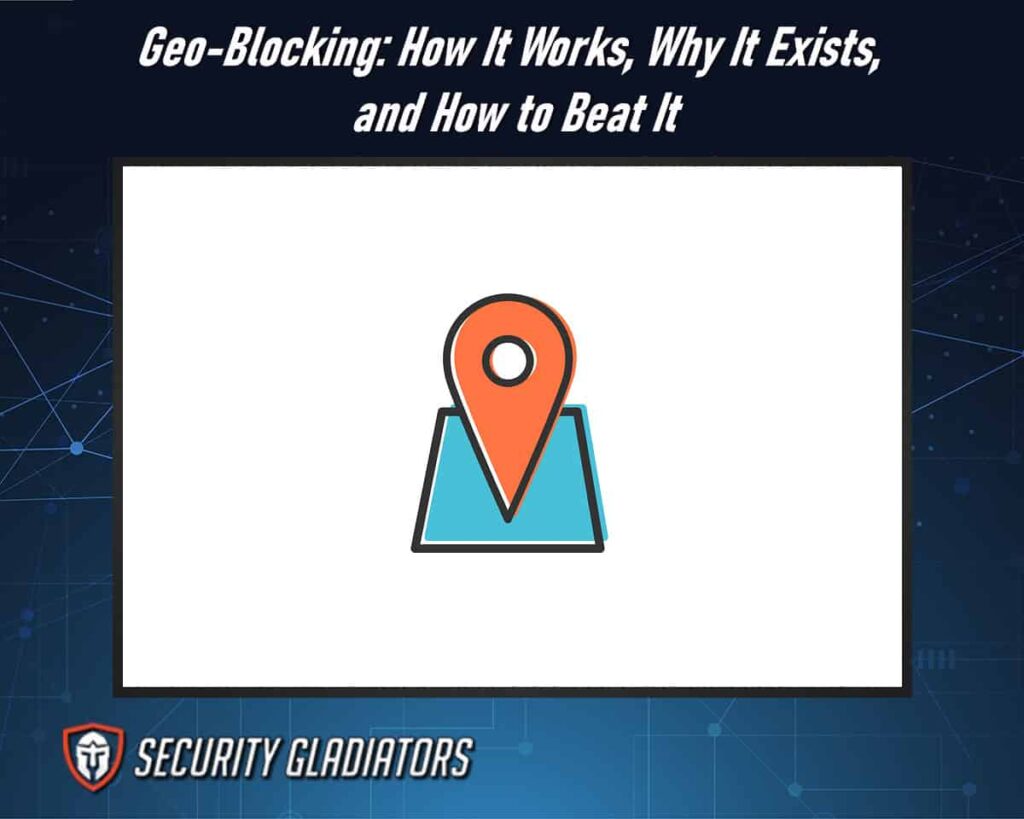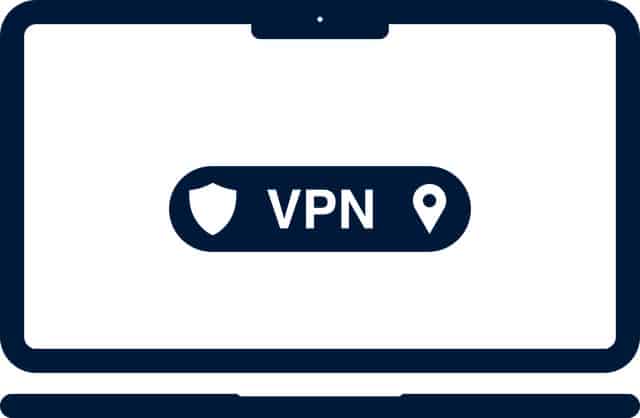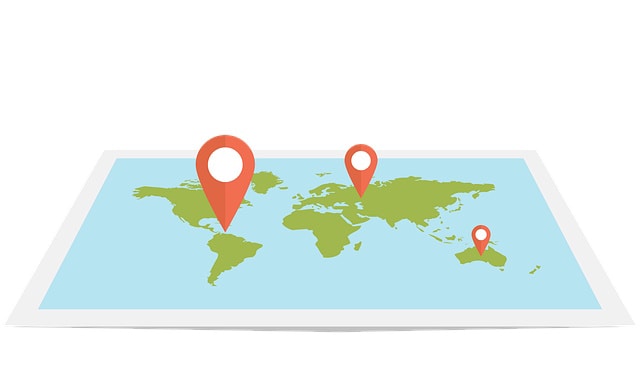
Table of Contents
What Is Geo-Blocking?
Geo-blocking is a way to control access to online content based on users’ geographic location. It works by analyzing the IP address associated with an internet connection and denying or allowing access depending on where it originates. For example, if someone in the United States attempts to access a website blocked for visitors outside of Europe, they will be denied service. Some ISP’s block websites due to new laws being passed or for copyright reasons. To bypass this type of restriction, some technologies can be used. Individuals can gain access regardless of their geographical location by connecting through a proxy server or a VPN located in another country that has full access to the website or content being requested. This allows anyone who wishes to access geo-blocked content without having to worry about any censorship or limitations imposed by governments or other entities.
How Does Geo-Blocking Work?
Geo-Blocking works by determining the user’s IP address, a unique identifier associated with the user’s internet connection and can be used to determine the user’s physical location. When a user tries to access a geo-blocked website or online service, the website or service checks the user’s IP address against a database of known IP address ranges for different countries. If the user’s IP address is located in a country that is not allowed to access the content, the website or service will block the user’s access. However, there are technologies, such as VPNs, that helps people unblock websites anywhere to access restricted content.
Note:
Geo-blocking is commonly used by companies to comply with local laws and regulations or to enforce licensing agreements. For example, a company may be required by law to restrict access to certain content in certain countries, or it may have an agreement with a content provider that limits the distribution of content to certain regions.Data Protection Law
While Geo-blocking may be used for legitimate purposes, such as protecting copyrighted material or ensuring data security, legal implications are involved. Data protection laws have been enacted around the world to ensure that individuals’ personal information is secure from unauthorized access or misuse. This includes measures prohibiting geo-blocking except when necessary for protecting copyright holders or safeguarding sensitive information. In some cases, these restrictions could even be deemed illegal if they were found to impede trade between countries without providing sufficient justification for doing so. Organizations must consider the various legal implications associated with geo-blocking before restricting users from accessing their services.
Is Geo-Blocking Legal?
The legality of geo-blocking varies depending on the jurisdiction and the case’s specific circumstances. In general, companies have the right to control their content’s distribution and enforce licensing agreements, but they must also comply with applicable laws and regulations.
The European Union has taken steps to limit the use of geo-blocking within its member states. In 2018, the EU adopted new rules prohibiting unjustified geo-blocking of online services based on the customer’s location or nationality. This means that companies are no longer allowed to block or redirect customers based solely on their geographical location unless there is a legitimate reason to do so.
Other jurisdictions may have different laws and regulations governing the use of geo-blocking. For example, in some countries, blocking access to certain websites or online services may be illegal. In addition, international treaties or agreements may govern the distribution of certain types of content, such as movies or music.
Some governments have implemented policies that provide more freedom when it comes to accessing digital services across borders, thus allowing citizens of those nations greater opportunities when it comes to engaging with digital materials around the world:
- International agreements can help facilitate cross-border data flow
- Companies may use domain name systems (DNS) that enable customers from different locations to reach the same web page
- Network providers can be licensed or otherwise allowed by law enforcement agencies to offer international roaming options, which allows subscribers unrestricted travel within participating areas
- Consumers can purchase subscriptions directly from service providers abroad instead of through localized markets
- Governments may lift bans on local internet services for visitors who come into their country temporarily
Benefits of Bypassing Geo-blocking
Bypassing geo-blocking can provide a number of benefits to users, including:
Access To Content
The primary benefit of bypassing geo-blocking is the ability to access content that would otherwise be unavailable in your region. This can include TV shows, movies, music, and other types of online content. This is mostly done by media companies.

Increased Privacy
By using a VPN or proxy server to bypass geo-blocking, you can also protect your online privacy by masking your IP address and encrypting your internet traffic. This can help to prevent online tracking and monitoring by third parties, including government agencies and advertisers.
Improved Security
Bypassing geo-blocking can also improve your online security by protecting you from malicious websites and phishing scams. By routing your internet traffic through a secure VPN or proxy server, you can avoid potentially harmful websites and protect your personal information from cybercriminals.
Cost Savings
In some cases, bypassing geo-blocking can also help you save money on online services and products. For example, you may be able to access streaming services or online stores that offer lower prices in other regions or take advantage of special promotions and discounts that are not available in your own country.
Factors To Consider When Choosing Technologies for Bypassing Geo-Restrictions
When choosing tools for bypassing geo-restrictions, it is important to consider several factors, including:
Privacy and Security
Make sure the tool you choose provides adequate privacy and security measures, such as encryption and a strict no-logs policy.
Speed and Performance
The tool should not significantly slow down your internet connection or reduce your browsing speeds.
Compatibility
Ensure that the tool you choose is compatible with your operating system and devices, and that it is easy to set up and use.
Server Locations
Check that the tool has servers in the countries you need to access content from, as well as servers in other regions for a wider range of options.
Reputation
Look for tools with a good reputation for reliability and user satisfaction, and check online reviews to see what other users have to say about their experience.
Cost
Consider the cost of the tool, as well as any additional fees or charges that may apply, such as data usage or subscription fees.
Legality
Make sure that the tool you choose is legal in your country and does not violate any applicable laws or regulations.
How To Bypass Geo-Blocking
Bypassing geo-blocking offers a wide range of advantages. To enable this, one must understand the various techniques used to avoid these restrictions. Below are some of the ways of bypassing geo-blocking:
1. Virtual Private Network (VPN)
A Virtual Private Network (VPN) is an effective tool for bypassing geo-blocking and accessing censored websites worldwide. Connecting the user’s device to a remote VPN server masks the true IP address, allowing them to appear as if they are in another country with different geographic restrictions. This allows the user access to content that may be blocked due to their physical location.

Using a VPN provides increased security and privacy while browsing online by encrypting data sent between devices and servers so that no one can monitor or track what the user does while connected from the internet service providers. VPN technology helps people overcome oppressive geo-blocking measures imposed by governments and other organizations attempting to control access to information.
2. Proxy Servers
Proxy servers are commonly used to circumvent geo-blocking and provide unrestricted access to users. By connecting through an intermediary server located in another country, proxy servers can allow users to mask their IP addresses and appear to be accessing content from that location. This allows users to bypass geographical restrictions imposed by content providers and gain access to websites or services which would otherwise be blocked. Along with providing unrestricted access, these proxies offer anonymity for their users, allowing them greater freedom when browsing the internet without fear of being tracked or monitored.
3. Tor Browser
The use of a Tor Browser allows users to access the Internet in an anonymous and secure way. The browser uses the Tor network, a system of connected nodes from around the world that block IP addresses and encrypt data traveling through them. As such, it can help bypass geo-blocking measures, allowing citizens from all countries to access content censored by authoritarian governments or blocked for other reasons. This makes Tor Browser an effective tool against internet censorship and provides security benefits to its users. While this provides significant protection from malicious actors and surveillance attempts, it also means that geo-blocking efforts will not work when using this technology.
4. Smart DNS and DNS Changers
There are ways to circumvent geo-blocking by using Smart DNS and DNS Changers. These tools use military-grade encryption, allowing users worldwide to access restricted content regardless of their physical location anonymously. As a result, this helps create an open and digital environment for consumers, allowing them more freedom in consuming online media. The implications for digital businesses looking to expand their customer base globally should not be underestimated.

Impact of Geo-Blocking on Consumers
By examining the user’s real IP address and other data points associated with it, websites can determine the geographic location of their visitors accurately and decide whether or not they should be granted access to certain content. This technique can be beneficial for blocking malicious traffic from certain regions. Still, it can also significantly impact consumers who may otherwise be legally entitled to consume particular content.
Though geo-blocking has been widely adopted in recent years, numerous countries still lack clear regulations regarding this type of restriction. Users may sometimes be blocked from accessing content even when they possess legal rights due to their geographic location. As such, regulations need to be implemented so that consumers are appropriately protected against unjustified restrictions while companies maintain an effective way of filtering out unwanted traffic from certain areas.
Conclusion
Geo-blocking limits access to digital content based on geographical location. It has become increasingly common in the digital age and affects many consumers worldwide. Despite its prevalence, there remains confusion regarding how it works and whether or not it’s legal under data protection law. Fortunately, various tools allow individuals to bypass geo-blocking without breaking the law.
Governments are beginning to take steps toward reducing this practice due to its impact on consumer rights. While geo-blocking may be necessary for certain business operations, more must be done to ensure equal access to online content regardless of geographic location.

